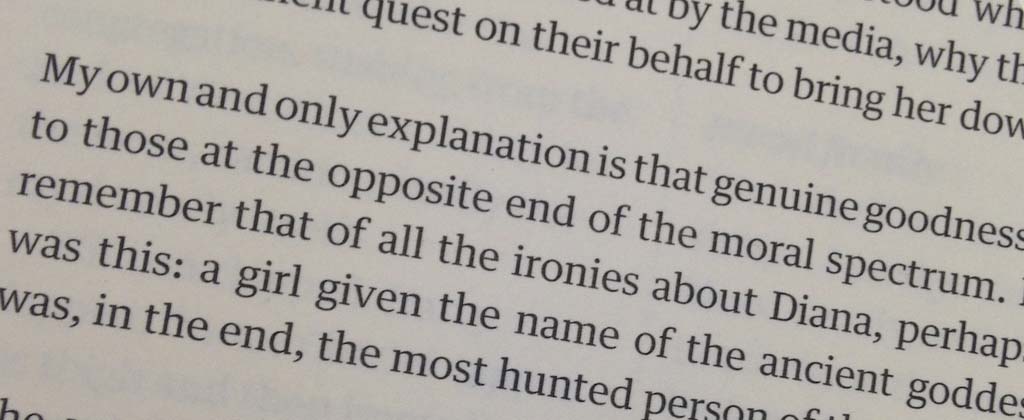Great Speeches: Earl Spencer - September 6th 1997
This post is part of a Series on Great Speeches. In 2007 The Guardian published a series of booklets, with accompanying cd, entitled Great Speeches of the 20th Century, ranging from Winston Churchill to Nelson Mandela, Emmeline Pankhurst to Virginia Woolf.
A eulogy is defined as “a speech or piece of writing that praises someone or something highly, especially a tribute to someone who has just died.” Often it is deeply personal and yet gives voice to those who are also connected with the deceased, in a way that should resonate deeply. This is even more challenging in the life of someone who was so much a public figure, such as Diana, Princess of Wales. However it was the task of her brother, Earl Spencer, to deliver it that day.
The suddenness of her death came as a JFK-moment for many, recalling the time and place when they heard the news. The loss of someone out of reach, but not out of touch. Someone people felt a deep connection with. However distant that connection was in reality.
And yet, not everyone was caught up in the overwhelming tide of emotion either. Diana had been pursued by the paparazzi from the day of Prince Charles’ first interest in her. Described by her brother as, “the most hunted person of the modern age”. And for the Royal Family she was a ‘misfit’, who had become an unpredictable embarrassment.
So whilst the crowds gathered outside the Abbey, hundreds watching the big screens in Hyde Park and on televisions across the world, inside the Abbey, Earl Spencer’s immediate audience must have sat, shifting nervously.
“Diana was the very essence of compassion, of duty, of style, of beauty. All over the world she was a symbol of selfless humanity, a standard-bearer for the rights of the truly downtrodden, a very British girl who transcended nationality. Someone with a natural nobility who was classless and who proved in the last year that she needed no royal title to continue to generate her particular brand of magic.”
"She needed no royal title" reminded everyone of the fairytale marriage that had ended in divorce. And yet he spoke with heartfelt emotion, with the closeness of a brother who had “endured those long train journeys between our parents’ homes” with her. He spoke personally and proudly. And somehow - despite the world of difference between his relationship with his sister, and that of those outside - he spoke most frequently of ‘we’, of ‘our’ - “We are all united … We have all despaired at our loss over the past week”. Deeply aware that “millions of people … who never actually met her, feel that they, too, lost someone close to them in the early hours of Sunday morning”.
In doing so he acknowledged not just this unexpected outpouring of grief for her, but validated the need for it. The feelings of a nation, forever immortalised in The Queen - were captured by then prime minister Tony Blair, calling her ‘the people’s princess’. His speech "scribbled by Mr Blair on the back of an envelope, following discussions with Alastair Campbell, his director of communications”.
And that grief could so easily have turned to anger, as it often does. It can be part of the healing process, especially after a sudden death, because of a good life taken, without reason, without explanation. And people were frustrated - at The Queen for seeming detached and uncaring, at the paparazzi for being instrumental in pursuing Diana to her death, at the Royal Family generally for not understanding or appreciating their Princess, and for the boys of course - William and Harry, lost without a mother in seemingly cold and distant institution.
Somehow Earl Spencer’s speech captured all of that - the grief, the shock, the adoration, the compassion, the anger, the frustration, the helplessness, and the admiration. And if it was surely cathartic for him, it was for a nation in mourning.

